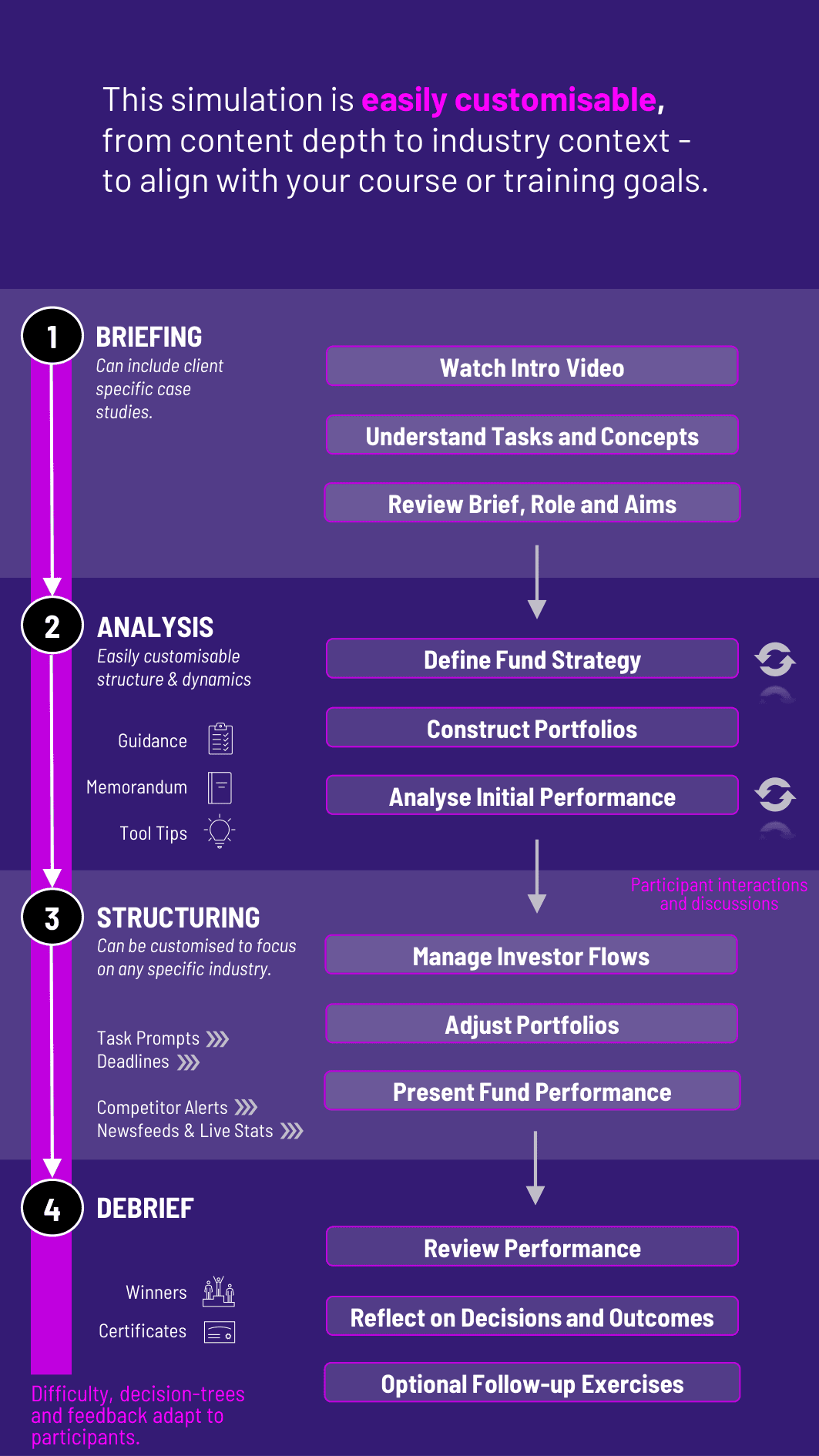
Participants take on the role of mutual fund managers—constructing portfolios, managing investor flows, and aligning strategy with client expectations - in our Mutual Funds Course.
Fund Structures: Open-ended vs closed-ended, active vs passive
Portfolio Construction: Asset allocation, diversification, and investment mandates
Performance Metrics: Alpha, beta, Sharpe ratio, and tracking error
Investor Behavior: Subscription/redemption flows, sentiment, and fee sensitivity
Cash Management: Liquidity buffers, trade settlement, and market timing
Regulatory Considerations: Disclosure, fund mandates, and compliance constraints
Market Communication: Monthly factsheets, strategy notes, and investor calls


Define a fund strategy and target investor profile
Construct and rebalance a portfolio aligned with the stated objective
Respond to market shifts and evolving investor flows
Analyze fund performance relative to the benchmark and peers
Adjust cash holdings to meet liquidity needs during redemptions
Prepare a final investor report summarizing performance and decision rationale
Participants experience the practical realities of running a mutual fund, gaining insight into both technical and behavioural dimensions. They learn to:
Build portfolios that balance return potential with investor expectations
Manage inflows and outflows while protecting core fund strategy
Monitor and interpret key performance and risk metrics
Communicate investment decisions clearly and convincingly
Understand how client needs, market volatility, and operations intersect
Reflect on fund performance in terms of both outcomes and process
Do participants need prior experience in portfolio management? A basic understanding of asset classes and risk-return concepts is helpful, but the course includes onboarding to all key fund management principles.
Can participants choose different fund types? Yes. Instructors can assign equity funds, balanced funds, thematic funds, or sector-specific mandates.
How long does the course take? Typically 2–3 hours, though it can be extended across multiple rounds for longer-term strategy development and investor updates.
Individual or team-based play? Both options are available. Teams often take on roles such as portfolio manager, operations, and investor relations.
How is participants performance assessed? Based on portfolio returns, risk metrics, client retention, and quality of fund reporting and investor communication.
Join this 20-minute webinar, followed by a Q&A session, to immerse yourself in the course.
or
Book a 15-minute Zoom demo with one of our experts to explore how the course can benefit you.